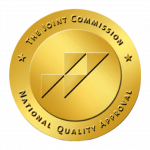This may seem like common sense, we all know how important sleep is. However, when it comes to alcohol or any addiction, sleep was never a priority. Nights are spent up all night binge drinking or getting high and the days are for sleeping. Although, yes, you may have been sleeping, however sleeping when under the influence is not equivalent to a good night’s sleep.
According to studies, drinking alcohol before bed can add to the suppression of REM sleep during the first two cycles. When under the influence it is common for a person to fall into a deep sleep rather quickly because alcohol is a sedative. Thus, creating an imbalance between slow-wave sleep and REM sleep and decreasing the overall sleep quality.
This is why a good night’s sleep in alcohol rehab is so important. Not only to allow your body to finally rest and begin to recover but to begin getting back into a healthy sleep pattern. Below are 5 reasons explaining why a good night’s sleep in alcohol rehab is important.
Poor Sleep Is Dangerous
We know that bad sleep or a lack of is not good for your health, but can it be dangerous? Occasional or social drinking can disrupt a few nights of good sleep here and there. However, when binge drinking and addiction begin to occur this is when several nights of sleep deprivation cause serious health ramifications.
When we begin missing sleep or only sleeping for hours at a time, this can lead to microsleeps or seconds-long periods of rest during the day. This can result in less focus while driving, becoming more irritable in your relationships, as well as less focus when at work or school.
During microsleep, our brain is temporarily unable to focus or respond to stimuli. For someone participating in IOP, driving to treatment during a microsleep can be extremely dangerous. Also, research shows that missing sleep is linked to more serious health problems like; strokes, obesity, and Alzheimer’s.
Sleep Is Restorative
A normal sleep cycle contains four different stages that repeat several times throughout the night. These include three non-rapid eye movement stages (NREM) and one rapid eye movement stage (REM). However, the two that are considered restorative are delta wave sleep and REM sleep.
- Delta wave sleep is the third stage of NREM. In this stage your muscles completely relax, your heartbeat, breathing rates, blood pressure, and brain activity reach their lowest levels of the sleep cycle. Thus, allowing your body to take a break and rebuild itself. This is also when our brains begin consolidating our memory.
- REM sleep is the stage where our breathing rate and heartbeat quicken, eye movements restart, and we dream. During REM sleep your body experiences temporary paralysis, separating the body and brain from its awake state. Furthermore, during this stage is when your memory consolidation occurs, we process emotions, and comb through your day to store any important emotional memories.
Because these stages of sleep contain critical functions, without them, you are less likely to benefit from emotional and psychological healing. The lack of sleep in alcohol rehab will have a direct impact on the speed of the healing process during treatment.
Sleep Is Good For Your Mental And Physical Health
Getting at least 8 hours of sleep each night promotes better all-around mental and physical health. A good night’s sleep helps avoid high body mass index (obesity), type II diabetes, and a low immune system. Some of the threats to our physical and mental health that sleep deprivation can cause include:
- Cardiovascular disease
- Stroke
- Heart attack
- Anxiety disorders
- Mood disorders
- Stress
Irritability Decreases With Good Sleep
A study done by the University of Florida (2021) found that sleeping less than six hours a night for 8 nights in a row caused a person to experience a significant amount of anger and irritability. However, when sleeping pattern resumed back to normal, as did the feelings and mental state of the individual.
Getting enough sleep consistently promotes better well-being and less likely to be bothered by small things and less reactive to bigger issues. Talking about your addiction in treatment can be a trigger which is why sleep in alcohol rehab is important. To help avoid frequent outbursts when triggers arise.
Sleep Helps Curb Impulses
Cravings are a big struggle during rehab and treatment. The strong urge to return back to old habits is hard to overcome, and if you are not getting a sufficient amount of sleep your focus becomes foggy and poor decisions can be made. With a good night’s rest, you are more capable of resisting these impulses and focusing on the reason you are choosing sobriety.
Begin Your Road to Recovery
If you are ready to break free from your alcohol addiction contact the Harm Reduction Center in South Florida. We offer extensive treatment options, from Integrated Medication-Assisted Treatment (MAT) to Intensive Outpatient Program (IOP). We know how important sleep in alcohol rehab is which is why we strive to make each client feel as comfortable as possible throughout their journey to freedom. Contact us today!














